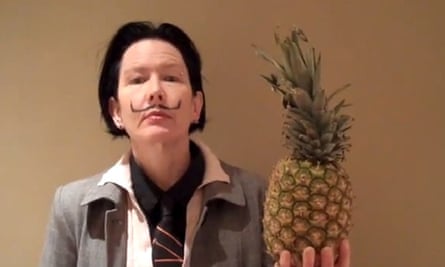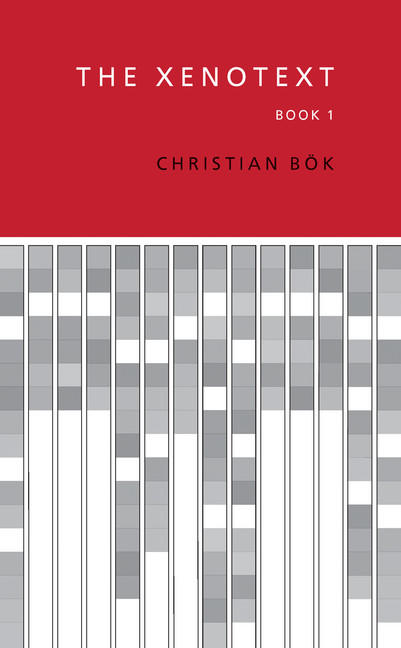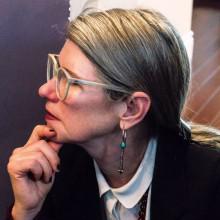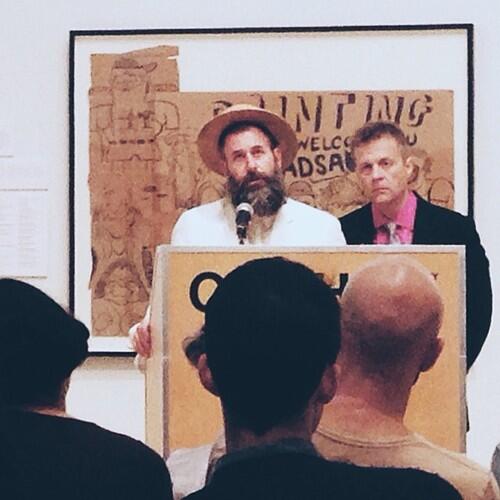
from Flight

from Flight

from The Sluts
Experience: There are usually a few street hustlers working the blocks around a local bar here in Long Beach called Pumpers. That's where they like to hang out and play pool between tricks. It's a pretty sad scene, so I couldn't believe my eyes when I saw this beautiful, skinny kid with a backpack who told me his name was Brad. He didn't look a day over fourteen, but his ID said 18 so I'll let it stand at that.
I took him back to my place. He was very quiet and didn't seem to want to talk. He wouldn't give me a price or say what he was into. He also had a slight twitch where he'd crane his neck and open.his mouth. I took that to be a drug reaction
The Sluts
since he was obviously on something. There were warning signs everywhere but Brad was so hot that I just ignored them. I'm glad I did, but keep reading.
He asked if I had any alcohol. I thought he was high enough already, but he said he had to be 'fucked up to do it.' So I gave him some whiskey and he proceeded to get quite drunk but not loud and obnoxious. If anything he got even quieter. He still wouldn't talk money or specifics. He gave me the impression that whatever I wanted to do and pay him was fine. After about thirty minutes of steady drinking, I decided to make a move.
Here's the thing. The sex was unbelievable. Brad will do anything as far I can tell, but he's definitely a bottom. He never got hard, but he sure acted like he was into it. He has the hottest, sweetest little ass, especially if you like them a little used like I do. I must have eaten out his hole for an hour. I got four fingers inside him. I couldn't fuck him hard and deep enough. I spanked him, and not softly either. I pinched and twisted the hell out of his nipples. Nothing fazed him. All the time his cute boy face looked at me with his mouth wide open and made these sounds like he was scared to death and turned on at the same time. I came twice, first in his mouth and then up his ass. I should say that I never practice unsafe sex, but I just couldn't help it. I'm HIV-, however.
Here's where the problems started. He didn't want to stop. It's like he couldn't get himself out of whatever zone
Dennis Cooper
he was in. I was afraid he'd lost his mind. It was very spooky. I didn't know what to do with him. I let him sleep over because he didn't seem dangerous, but I fell asleep to the sound of him whimpering and thrashing around. I left $200 for him on the dresser, and when I woke up, he and the money were gone. There was a note from him with his phone number on it saying to please call him or tell my friends about him. Overall, it was great, but once is enough for me.
You: I'm a middle-aged, overweight top into teenaged street trade, the cuter and skinnier the better.

from Frisk
This part’s a blur.
“You know, it’s wild,” Henry said. He was fondling his way down a hall behind what’s-his-name. ” . . . but I don’t even remember where we met tonight. I keep thinking “party.” That’s about it. Are you as totaled as I am?”
“Probably.” The guy glared over his shoulder. He still looked cute enough to justify what was starting to happen, whatever that was. “Keep your hands down,” he added. “I mean if you need to keep your balance, use the walls, not my father’s African art collection.”
“I am.” Henry focused on the door at the end of the hall. He supposed they were aimed there, because it was open. No matter how low he reached on the walls he kept touching the limbs of wooden statues, so he gave up and clutched at the guy’s untucked shirt.
“Don’t fucking rip it.”
“I’m not.”
Henry flopped on the bed. It bounced around and squeaked for five, six seconds. The guy stripped. He had tiny red genitals, spider-webby blond pubic hair. Not that Henry cared about defects like that. He himself was a big waste of time from the neck down at this point, thanks to uncountable drugs.
“Get that stuff off,” the guy mumbled.
“Oh, am I still dressed?” Henry toyed with a shirt button, twirling this way, that. Within a second or two he was spaced out. ‘mm.” He felt something sharp, fingernails, a hand, the guy’s. It was yanking his underwear down. The pair got snagged around his feet. The guy left them dangling there. Henry’s feet were huge. He raised up, peered down his chest. But blurry. ‘so, uh, I don’t really know . . . what you, like . . . expect . . . to, like, get out of that.” He pointed at his cock and said “that” again, sort of ironically.
“We’ll . . . see . . .” The guy’s face made a rocky landing on Henry’s crotch.
“Oh, okay, go ahead.” Henry let his head drop.

from Closer
JOHN
THE BEGINNER
John, 18, hated his face. If his nose were smaller, his eyes a different brown, his bottom lip pouty ” As a kid he’d been punched in the mouth and looked great for a couple of weeks. Six years ago punk rock had focused his life. John liked the way punk romanticized death, and its fashions made pretty good camouflage. He dyed his hair blue-black, wore torn T-shirts, smeared his eyes with mascara, and stared at the floors of his school like they were movie screens. He’d never felt more comfortable with himself.
Nowadays punk bored his schoolmates. John stuck it out, but the taunts and cold shoulders were threatening to ruin his new confidence. One afternoon he hitchhiked home, grabbed a pencil and paper and wrote down his options. “Make enemies.” Trouble was, he’d always felt so indifferent toward people. “Therapy.” That might have meant he was hopeless. “Art.” On the strength of some doodles he’d done as a kid, and that his mother had raved about, he enrolled in a life drawing class.
John’s teacher was fairly impressed.
He announced to the class that the “work” was “unique” and compared it to “brilliant police sketches.” John knew this was only a guess but the attention was just what he needed, so he refused to confirm or deny any interpretation, no matter how stupid. It was the tactic his favorite bands had always used to stay hip. That did the trick. Students would crowd around him after school and kind of hint how they wouldn’t mind modeling when he had a moment.
He didn’t have time to draw everyone, but being picky meant choosing an artistic goal. John couldn’t. He didn’t know what he was doing. He wound up selecting the best-looking students because they were fun to deface, and pretty easy to bullshit. He’d just sort of casually say that maybe he was portraying how tortured they were behind their looks and they’d gasp at his scribbles like they were seeing God or a UFO.
One afternoon a sophomore named George Miles took a seat in John’s bedroom and tried not to blink. He’d looked cute, maybe even a little too cute, across the school cafeteria but one-on-one he twitched and trembled so much he made John think of a badly tuned hologram. John tried to draw but George was already ruined without his help. “I’ll take a Polaroid,” he thought, “in case I become a photographer.” Reaching for the camera, he happened to notice the bed. No film. “Listen, I’ve got another idea,” he said.


where at least the churches
weren’t blown from their foundations
while little girls prayed to a god
busy cleaning the floors of their rooms
in a heaven not on fire
I say I have arrived and the black people in the room hear
No one was eager enough to see my father dead
the story, as I have heard it told, says that winter was a blessing
for those who needed a place to hide a body in the north
in the south, before the world began to swallow itself, it never snowed
the bridges would sag with the weight of death
it is romantic, what the ocean lapping at your brothers blood
will drive you to on the perfect night
there is the joke written by men
about how virgins will be the only ones spared in the horror film
the horror film, as I understand it,
has never had any intention of sparing me
oh, undertaker
I am beneath you again tonight
forgive the clumsiness with which I drown
in your endless feathers
watch, as I press my lips to your neck
and vanish from all of my baby pictures


Reviewing my notes of the last year, I see that I have occasionally referred to past events as if they were present. In my defense, it is a habit born of scholarly convention. One would not write "Virgil wrote," but rather, "Virgil writes of two ways to exit the realm of the dead," in a formal study of underworld closure. Just so, every writer, living or dead, is forever suspended in a crepuscular present indicative.
The same could be said of world affairs writ large. AFGHANISTAN SIGNED MAJOR OIL DEAL WITH CHINA would make for an awkward headline. Somehow AFGHANISTAN SIGNS MAJOR OIL DEAL WITH CHINA sounds more timeless. The story itself may revert to the preterite—i.e., "the Islamic Republic of Afghanistan and the People's Republic of China arrived at an agreement for the development of oil blocks in the Amu Darya basin"—but the slippage is there for all to see.
The grammatical term for this crux in our language is the historical present. It gives one a feeling that what is over and done with remains somehow in process. Looking out the window, I think it over. My wife is digging a hole under our overgrown Japanese maple. Stray leaves cling to her shoulders and hair. Tearing at her mother's bathrobe, Mira wails, an anti-Antigone, drenched in tears and snot. "Please, Mama, no, I don't want to say bye-bye!" I do not go out to them. Sorry. I wasn't there.

From Underworld Lit
XXII.
That night, the twins put on a show for the villagers. Chen watched from a wobbly stool in the front row. Some sort of fermented pink liquor was passed around in a hollow gourd. Low in the sky, a full moon polished everything silver.
The boys danced on stilts like drunks in high marsh grass. One shook a rain stick, wearing an armadillo mask. The other, dressed as a whippoorwill, blew into a flute carved from bone. Everybody clapped in time. As if by magic, the gourd kept reappearing in Chen's hands.
With a flourish, the spotted boy unsheathed his machete, looking up to the sky. Opening wide, he slid the blade down his throat. It disappeared slowly, passing through the pharynx, the voice box, and then the esophagus. Chen retched in sympathy, but soon recovered himself. Deep in the foliage, the crickets and rain frogs resumed their pulsating whistle.
[I love Popol Vuh: Definitive Edition trans. Tedlock—trans].
Next, the twins set fire to the schoolhouse with lit cigars. Jugular bulging, the constable howled in the moonlight. Burning papers fluttered out like hurt birds from the window. A storm lantern exploded with a fiery pop. The load-bearing joinery began to show through, lit from within, until the whole affair was reduced to blazing lacework. At last the roof caved in, followed by the walls, leaving only a spidery doorframe full of smoke. It was too much for the children, who were led away in tears.
[I love Popol Vuh: Edición Definitiva trans. Villanueva—trans].
Now it was time for the night's final act. The boy with the jaguar spots dropped to his knees. His brother lay on the ground before him, eyes rolled back, looking inward. With a swift fluid motion, the kneeling boy plunged a hand into his brother's chest, withdrew a dripping fist, and brandished it like a fishmonger advertising the day's catch. A dark rift opened, unnoticed, in the Milky Way overhead.
[I love Bō bō ěr·wū: Zuìhòu de bǎnběn trans. 列子—trans].
"Rise up!" the jaguar commanded.
The bloodied youth rose to his feet and, gazing out on the crowd, slowly raised a fist in the air. The villagers leapt from their seats with a universal roar. Wobbling on his stool, Chen struggled to stand, too, as the world began to spin, counter-clockwise, around the former tea-totaler from Hóu-tcheou-fou. The last thing he remembered was somebody leading him off in the dark.

Psalm
I do not intend to hurt anyone.
I did not intend to hurt anyone.
O Jerusalem, we gutless few delighting sobre tierra de libres
In perspicacity
what you would see if you were not drown’d in sound and sight wooly-headed as a chrysanthemum literal as the lamb.
What we could do as one in two, our prayers made hand-in-hand you are my voodoo chile
my voodoo chile

Enciphered in a bacterium, The Xenotext is the world’s first living poem. Christian Bök has spent more than 10 years writing what promises to be the first example of ‘”living poetry.” After successfully demonstrating his concept in a colony of E. coli, Bök is on the verge of enciphering a beautiful, anomalous poem into the genome of an unkillable bacterium (Deinococcus radiodurans), which can, in turn, ‘read’ his text, responding to it by manufacturing a viable, benign protein, whose sequence of amino acids enciphers yet another poem. The engineered organism might conceivably serve as a post-apocalyptic archive, capable of outlasting our civilization.

dadaism is
a samizdatflusch kata
ballubasch
zack hitti zopp
zack hitti zopp
hitt betzli betzli
prusch kata
ballubasch
fasch kitti bimm
zitti kitillabi billabi billabi
zikko di zakkobam
fisch kitti bisch
bumbalo bumbalo bumbalo bambo
zitti kitillabi
zack hitti zopp
tressli bessli nebogen grugu
blaulala violabimini bisch
violabimini bimini bimini
fusch kata
ballubasch
zick hitti zopp

How does it work?
Listening to Tom Jones on LP and reading Carlyle?
Which brings about a beautiful idea –

Who am I? – if not some neglected astronaut, being immolated by a fierce aurora, while striding in my spacesuit across the Avenue of the Americas. Who am I? – if not some phan- tom, fighter pilot, dreaming that, while weightless during free fall through a vacuum, my glass visor shatters at the sight of a turtledove. Who am I? – if not some poltergeist, imprisoned in a ruby room, aboard a ship, now derelict in the shoals, offshore from a swelling fireball. Yes, I have a soul (like you) – but mine is made of little robots. And no one sings me lullabies. And no one makes me close my eyes. And so I throw the windows wide, to call to you across the skies. And yet, I know that nowhere, among these glow- ing nebulae, do any of you exist. Who am I? – if not some stowaway in a microbe or some castaway in a seedlet. And yet, I must let loose upon the world my perfect malware. It is like the voice of a child, saying goodbye in the dark.

detail of Statement from After Language Poetry
Wershler-Henry suggests that, because we are faced with the impossibility of composing something totally innovative, we may have little choice but to pick through the rubble of the past, jerryrigging contraptions that that fuse old parts with new ideas, coalescing them syncretically into a contradictory set of unpredictable regenerations (like an unholy hybrid, for example, of Langpo spliced, say, with Vispo, Oulipo, and Fluxus). Future advances in the aesthetic formalism of poetry seem unlikely to occur unless we can experiment more audaciously with the technical apparatus of the book, disrupting the sequential temporality and stratified pagination of such a medium in order to produce the kind of text that might easily be mistaken for an interactive sculpture, a mechanized appliance, or even an artificial ecosystem. We may exalt the poets of the future, not because they can write great poems, but because they can program devices that can write great poems for us, doing so automatically within a digital economy of unrestricted expenditure. We may also want to keep in mind too that we are probably the first generation of poets who can reasonably expect to write poetry for inhuman readers, be they aliens, robots, or clones. The new millenium brings with it the prospect of poetry becoming a weird genre of science-fiction, fusing aesthetic concepts with technical conceits in order to foster our own pataphysical speculations.
This is not Euonia
from Euonia (Chapter1)
for Dick Higgins
Writing is inhibiting. Sighing, I sit, scribbling in ink
this pidgin script. I sing with nihilistic witticism,
disciplining signs with trifling gimmicks — impish
hijinks which highlight stick sigils. Isn’t it glib?
Isn’t it chic? I fit childish insights within rigid limits,
writing shtick which might instill priggish misgiv-
ings in critics blind with hindsight. I dismiss nit-
picking criticism which flirts with philistinism. I
bitch; I kibitz — griping whilst criticizing dimwits,
sniping whilst indicting nitwits, dismissing simplis-
tic thinking, in which philippic wit is still illicit.
Pilgrims, digging in shifts, dig till midnight in mining
pits, chipping flint with picks, drilling schist with drills,
striking it rich mining zinc. Irish firms, hiring micks
whilst firing Brits, bring in smiths with mining skills:
kilnwrights grilling brick in brickkilns, millwrights
grinding grist in gristmills. Irish tinsmiths, fiddling
with widgits, fix this rig, driving its drills which spin
whirring drillbits. I pitch in, fixing things. I rig this
winch with its wiring; I fit this drill with its piping. I
dig this ditch, filling bins with dirt, piling it high, sift-
ing it, till I find bright prisms twinkling with glitz.
Oh, and while I haven’t yet taken to walking backwards, I am sleeping backwards and I might also be thinking backwards.
But look, I mean who is going to complain about having two manuscripts when you were only planning on one? Sort of like having twins when you were only thinking of one, which sounds familiar and stressful.
I’m working on a poetry manuscript that seems to have split into two manuscripts. More confusing, I’m writing it backwards. I start at the beginning each time I sit down, and write the page prior to that.
So, when you asked me this originally what I was working on a big sigh went up. Apparently I am working on telling Jonathan what I am working on.
The new LemonHound.com is due to be unveiled. That has taken up more time than expected even though there are some dozen writers involved. It will be amazing. More than I thought it could be.
I am not teaching this fall so I am supposed to ONLY be working on MY OWN POETRY, but this proves very difficult with 1 year old twins, and students, even if I am not teaching them, and the ongoing world of my Internet life.
(One Jonathan Ball had something to do with this)
Somebody left the world last night, and last, and
last, and last: wild is the glower of wind, and words
too thin, too meek to shelter. Lament in rhyme, she
says, lament in roses: he was, and is not! It will
always be darker soon, colder, you who are part
anger who bent down in winter, know that your
prayers cannot dismiss the darting shade. No, let us
not shit upon the ground near the lone pile with ivy
overspread, and let me not your giddiness flatten,
for so fine the season, so serene the hour and all I
have left of that moment is this torn scrap.
I weave my bones thru the freeway haze at Rincon,
the self returns again, my natal self: what you see is
the red-shouldered judge of the Quirky and Dead. I
am not man, man is death, and the world pain. We
were all uncountable stars then: the tilt of earth is
beautiful from every angle.
I mourn for Adonis—I expected her to look more
dead in the casket. Let them bury your big eyes
death, be not loud; your hand did not give her this
blow, she was borne to church on glasses of Grey
Goose: Only the bottle knows she is gone. Damn the
snow, an uneven basin to stroll: the curfew tolls the
knell of closing time. The moon still sends its
abundant light. It is a hard time among these
stones, for all the toppled, liquid graves. A slumber
did your spirit steal. At Wilshire & Santa Monica
an opossum crossed. I thought, two forms move
among the dead, high sleep, so prescient your
absence.
Small is the poet’s needle, God knows: but inside
the heart a broken night advances in its glass.
Death knelt among the starving children on your
plate: I sometimes think of those pale, perfect faces
who die as cattle, and I can not sleep.
The city you graced was swift. Now that the
Summer of Love has become the milk of tunnels;
now that the chestnut candles burn, so may the
trees extend their spreading, there is blessing in this
gentle breeze. What need of bells to mark our loss?
Shall I go force an elegy? The dead sing Turn the
lights down sweetly. No more for us the little
sighing, nor the grand. All the new thinking is still
about loss.
The Failure of Buffalo to Levitate Millard Fillmore died here. His round body is weighted by marble angels. He lies among the great orator...